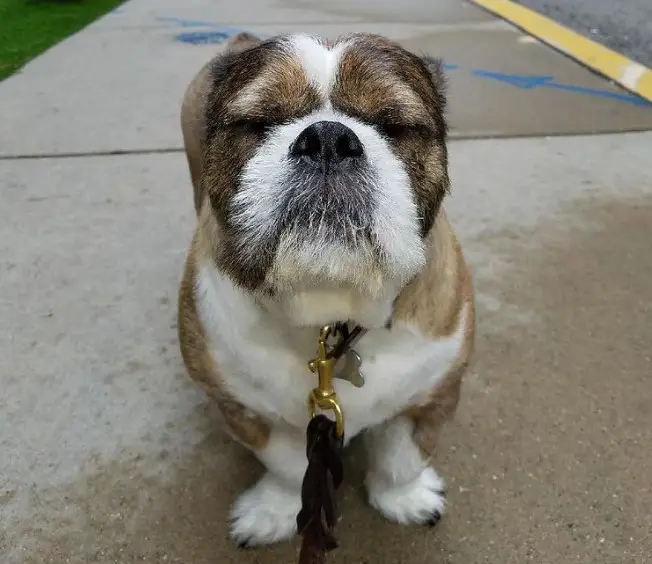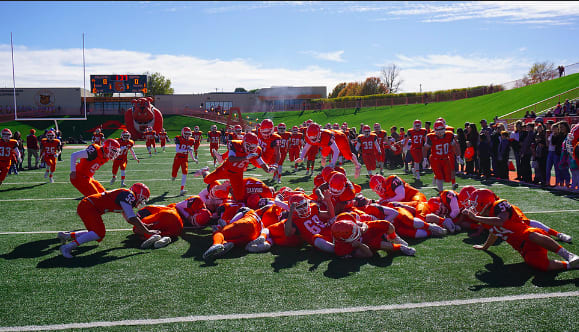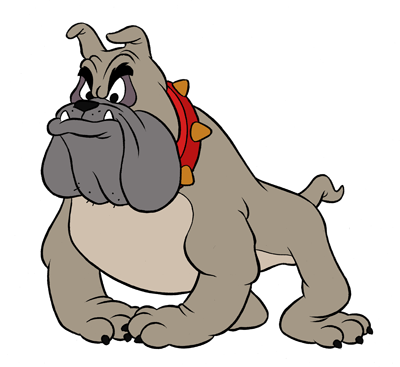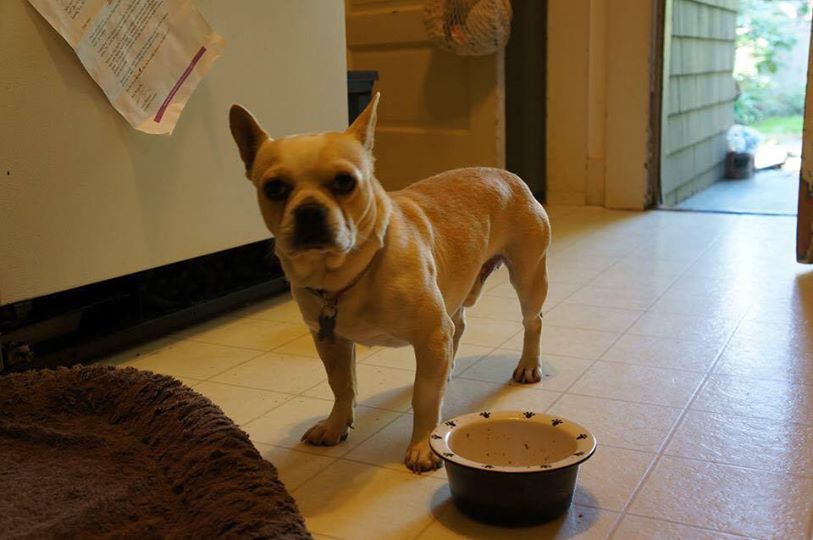French bulldog shakes herself after she has come out of the water making funny faces stock photo
Table of Contents
Table of Contents
If you’re a French Bulldog owner, you’re probably familiar with the way they shake their bodies. French Bulldog shakes can be cute, funny, or concerning depending on their context. In this article, we’ll explore everything you need to know about French Bulldog shakes, from their causes to their implications and how to deal with them.
Potential Pain Points of French Bulldog Shakes
French Bulldog shakes might seem harmless at first glance, but there are several pain points for owners to consider. First, Frenchies might shake when they’re anxious, scared, or sick, indicating that something is wrong. Second, Frenchies tend to be more susceptible to shaking than other breeds because they have less fat and muscle mass to regulate their body temperature. Finally, French Bulldog shakes can indicate a more severe condition, such as brachycephalic airway syndrome, that requires medical attention.
Target of French Bulldog Shakes
The primary target of French Bulldog shakes is to regulate their body temperature. Unlike humans, dogs don’t sweat, so they shake their bodies to release excess heat. Frenchies might also shake when they’re nervous or scared, which is a natural response to perceived danger or threat. In these cases, shaking is a form of self-comforting behavior that allows Frenchies to cope with stressful situations.
Summary of French Bulldog Shakes
French Bulldog shakes have multiple causes and implications that owners should be aware of. They can indicate anxiety, illness, or a more severe condition that requires prompt attention. However, French Bulldog shakes are a natural response to regulate their body temperature and cope with stressful situations. Owners can help their Frenchies by providing them with a comfortable and safe environment, regular exercise, and a balanced diet.
Understanding Brachycephalic Obstructive Airway Syndrome
Brachycephalic obstructive airway syndrome (BOAS) is a severe condition that affects brachycephalic breeds such as Frenchies, pugs, and bulldogs. BOAS is a combination of anatomical abnormalities that impede normal breathing, leading to breathing difficulties, snoring, and other respiratory problems. Frenchies with BOAS might also exhibit shaking, especially after exercise or when they’re excited. BOAS is a progressive condition that requires timely treatment to prevent further complications, such as heart disease, liver problems, or even death.
How to Deal with French Bulldog Shakes
If your French Bulldog shakes occasionally, there’s usually no need to worry. However, if your Frenchie shakes frequently or exhibits other concerning symptoms such as coughing, wheezing, or snoring, you should take them to the vet. Your vet can diagnose the underlying condition and provide you with a treatment plan that suits your Frenchie’s needs. Additionally, you can help prevent French Bulldog shakes by keeping your Frenchie’s environment comfortable and stress-free, providing them with regular exercise and a balanced diet, and monitoring their weight and health regularly.
Personal Experience with French Bulldog Shakes
As a French Bulldog owner, I’ve seen my fair share of French Bulldog shakes. My Frenchie, Luna, tends to shake when she’s cold or nervous, but otherwise, she’s a healthy and happy dog. However, I know that French Bulldog shakes can indicate serious problems that require medical attention, so I always keep an eye on her behavior and take her to the vet if I notice any concerning symptoms.
How to Prevent French Bulldog Shakes
The best way to prevent French Bulldog shakes is to provide your Frenchie with a comfortable and stress-free environment. Make sure your Frenchie has access to fresh water and shade, especially during hot weather. You can also use a cooling pad or a fan to help regulate their body temperature. Additionally, regular exercise and a balanced diet can help keep your Frenchie healthy and fit, reducing the risk of obesity and related conditions that might trigger French Bulldog shakes.
Question and Answer about French Bulldog Shakes
Q: How often do French Bulldogs shake?
A: French Bulldogs might shake occasionally, especially when they’re cold or nervous. However, frequent shaking or other concerning symptoms such as snoring, coughing, or wheezing might indicate a more severe condition that requires medical attention.
Q: Can French Bulldog shakes be prevented?
A: French Bulldog shakes are a natural response to regulate their body temperature and cope with stressful situations. However, you can help prevent French Bulldog shakes by providing your Frenchie with a comfortable, stress-free environment, regular exercise, and a balanced diet. Additionally, monitoring your Frenchie’s weight and health regularly can help detect potential problems in time.
Q: What are the most common causes of French Bulldog shakes?
A: French Bulldog shakes can have several causes, including anxiety, cold, stress, excitement, or underlying medical conditions such as BOAS or hypoglycemia. Owners should be aware of their Frenchie’s behavior and take them to the vet if they notice any concerning symptoms.
Q: Can French Bulldog shakes be a sign of pain?
A: French Bulldog shakes are not necessarily a sign of pain, but they can indicate discomfort or a medical condition that requires attention. Owners should monitor their Frenchie’s behavior and seek medical help if they notice any concerning symptoms.
Conclusion of French Bulldog Shakes
Frenchie shakes can be cute and funny, but they can also be a sign of underlying problems that require attention. Owners should be aware of their Frenchie’s behavior and seek medical help if they notice any concerning symptoms such as frequent shaking, coughing, wheezing, or snoring. However, French Bulldog shakes are a natural response to regulate their body temperature and cope with stressful situations, so providing your Frenchie with a stress-free environment, regular exercise, and a balanced diet can help prevent and reduce the risk of French Bulldog shakes.
Gallery
French Bulldog Shakes Herself After She Has Come Out Of The Water Making Funny Faces Stock Photo

Photo Credit by: bing.com / bulldog francese fronti divertenti scuote
French Bulldog Shakes Herself After She Has Come Out Of The Waters Stock Photo - Image Of Water

Photo Credit by: bing.com / herself shakes waters uscito acque
French Bulldog Shakes Herself After She Has Come Out Of The Water Stock Image - Image Of Blue

Photo Credit by: bing.com / shakes bulldog
French Bulldog Puppy - Harlem Shake | Behind The Scenes - YouTube

Photo Credit by: bing.com /
Franklin Shakes! | Frenchie Bulldog, Animal Lover, French Bulldog

Photo Credit by: bing.com / shakes stagram





